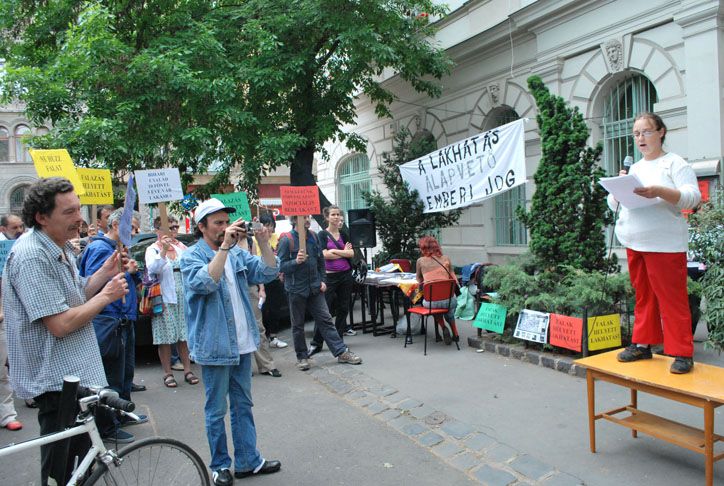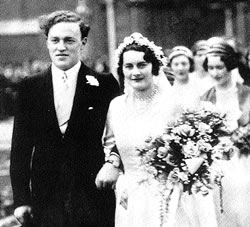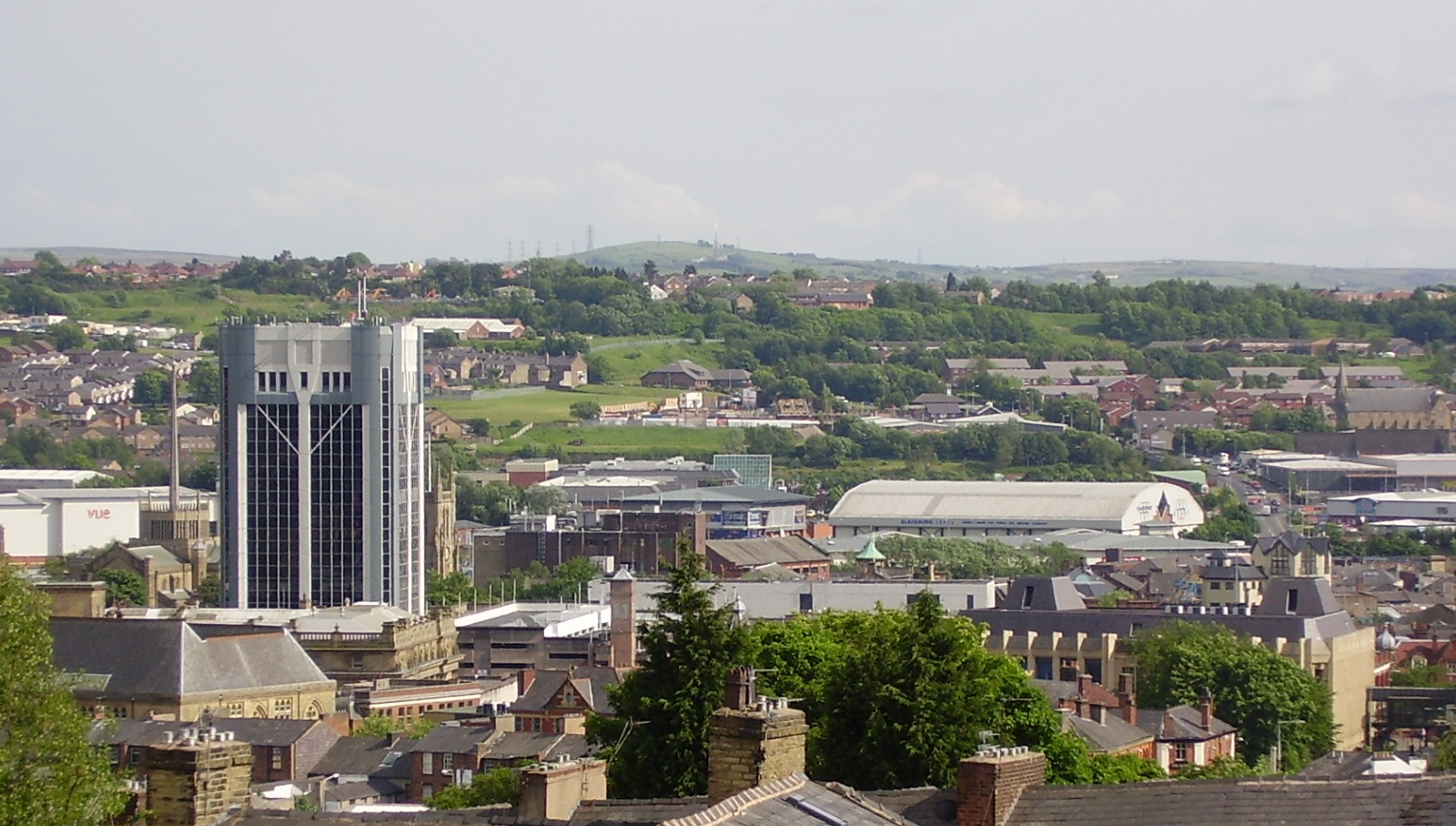|
Nationwide Festival Of Light
The Nationwide Festival of Light was a short-lived grassroots movement formed by British Christians concerned about the rise of the permissive society and social changes in English society by the late 1960s. The movement was opposed to what they saw as the growing trends in the mass media for the explicit depiction of sexual and violent themes. Its culmination was a pair of mass rallies in Trafalgar Square and Hyde Park, London in September 1971. It encouraged a number of other campaigns on similar themes, including the continuing Festival of Light movement in Australia, although it did not persist as a high-profile campaign in the UK, and the subsequent growth in the availability of sexually explicit and violent material would suggest that it had little effect on the media or on consumers. History According to the NFOL's official history as written by John Capon, the organisation's genesis was in November 1970, when a young couple, Peter and Janet Hill, returned to England ... [...More Info...] [...Related Items...] OR: [Wikipedia] [Google] [Baidu] |
Grassroots
A grassroots movement is one that uses the people in a given district, region or community as the basis for a political or economic movement. Grassroots movements and organizations use collective action from the local level to effect change at the local, regional, national or international level. Grassroots movements are associated with bottom-up, rather than top-down decision making, and are sometimes considered more natural or spontaneous than more traditional power structures. Grassroots movements, using self-organization, encourage community members to contribute by taking responsibility and action for their community. Grassroots movements utilize a variety of strategies from fundraising and registering voters, to simply encouraging political conversation. Goals of specific movements vary and change, but the movements are consistent in their focus on increasing mass participation in politics. These political movements may begin as small and at the local level, but grassroots ... [...More Info...] [...Related Items...] OR: [Wikipedia] [Google] [Baidu] |
Frank Pakenham, 7th Earl Of Longford
Francis Aungier Pakenham, 7th Earl of Longford, 1st Baron Pakenham, Baron Pakenham of Cowley, (5 December 1905 – 3 August 2001), known to his family as Frank Longford and styled Lord Pakenham from 1945 to 1961, was a British politician and social reformer. A member of the Labour Party, he was one of its longest-serving politicians. He held cabinet positions on several occasions between 1947 and 1968. Longford was politically active until his death in 2001. A member of an old, landed Anglo-Irish family, the Pakenhams (who became Earls of Longford), he was one of the few aristocratic hereditary peers ever to serve in a senior capacity within a Labour government. Longford was famed for championing social outcasts and unpopular causes. He is especially notable for his lifelong advocacy of penal reform. Longford visited prisons on a regular basis for nearly 70 years until his death. He advocated for rehabilitation programmes and helped create the modern British parole system i ... [...More Info...] [...Related Items...] OR: [Wikipedia] [Google] [Baidu] |
David Kossoff
David Kossoff (24 November 1919 – 23 March 2005) was a British actor. In 1954 he won the BAFTA Award for Most Promising Newcomer to Leading Film Roles for his appearance as Geza Szobek in '' The Young Lovers''. He played Alf Larkin in TV sitcom ''The Larkins'' and Professor Kokintz in ''The Mouse that Roared'' (1959) and its sequel ''The Mouse on the Moon'' (1963). Because of the drug use of his son Paul, a blues rock musician, who subsequently died, he became an anti-drug campaigner. In 1971 he was also actively involved in the Nationwide Festival of Light, an organisation protesting against the commercial exploitation of sex and violence, and advocating the teachings of Christ as the key to re-establishing moral stability in Britain. Life and career Kossoff was born in Hackney, London, the youngest of three children, to poor Russian-Jewish parents, Annie (née Shaklovich) and Lewis (Louis) Kossoff (1882–1943). His father was a tailor. His older brother Alec changed his ... [...More Info...] [...Related Items...] OR: [Wikipedia] [Google] [Baidu] |
Evangelical Alliance
The Evangelical Alliance (EA) is a national evangelical alliance, member of the World Evangelical Alliance. Founded in 1846, the activities of the Evangelical Alliance aim to promote evangelical Christian beliefs in government, media and society. The Evangelical Alliance is based in London, with offices in Cardiff, Glasgow and Belfast. History The Evangelical Alliance was founded in 1846 by Ridley Haim Herschell, Rev. Edward Steane – a Baptist pastor from Camberwell – John Henderson and Sir Culling Eardley, 3rd Baronet.Rosemary Chadwick, ‘Steane, Edward (1798–1882)’, Oxford Dictionary of National Biography, Oxford University Press, 200accessed 30 July 2014/ref> Eardley became the organisation's first chairperson, leading the Alliance in its various campaigns for religious freedom; in 1852, Eardley campaigned on behalf of the Tuscan prisoners of conscience Francesco Madiai and Rosa Madiai, who had been imprisoned for their Protestant faith. Overview The Evangelical ... [...More Info...] [...Related Items...] OR: [Wikipedia] [Google] [Baidu] |
Christ Church, Spitalfields
Christ Church Spitalfields is an Anglican church built between 1714 and 1729 to a design by Nicholas Hawksmoor. On Commercial Street in the East End and in today's Central London it is in the London Borough of Tower Hamlets, on its western border facing the City of London, it was one of the first (and arguably one of the finest) of the so-called "Commissioners' Churches" built for the Commission for Building Fifty New Churches, which had been established by an Act of Parliament in 1711. The purpose of the Commission was to acquire sites and build fifty new churches to serve London's new settlements. This parish was carved out of the circa medieval Stepney parish for an area then dominated by Huguenots (French Protestants and other 'dissenters' who owed no allegiance to the Church of England and thus to the King) as a show of Anglican authority. Some Huguenots used it for baptisms, marriages and burials but not for everyday worship, preferring their own chapels (their chapels w ... [...More Info...] [...Related Items...] OR: [Wikipedia] [Google] [Baidu] |
Pentecostal
Pentecostalism or classical Pentecostalism is a Protestant Charismatic Christian movement"Spirit and Power: A 10-Country Survey of Pentecostals" The Pew Forum on Religion and Public Life. that emphasizes direct personal experience of through . The term ''Pentecostal'' is derived from |
Plymouth Brethren
The Plymouth Brethren or Assemblies of Brethren are a low church and non-conformist Christian movement whose history can be traced back to Dublin, Ireland, in the mid to late 1820s, where they originated from Anglicanism. The group emphasizes ''sola scriptura'', the belief that the Bible is the only authority for church doctrine and practice. Plymouth Brethren generally see themselves as a network of like-minded free churches, not as a Christian denomination. History The Brethren movement began in Dublin, Ireland, where several groups of Christians met informally to celebrate the Lord's Supper together, the first meeting being in 1825. The central figures were Anthony Norris Groves, a dentist studying theology at Trinity College; Edward Cronin, studying medicine, John Nelson Darby, a curate in County Wicklow; and John Gifford Bellett, a lawyer who brought them together. They did not have any liturgy, order of service, or even any ministers; in their view, since their guide wa ... [...More Info...] [...Related Items...] OR: [Wikipedia] [Google] [Baidu] |
Baptists
Baptists form a major branch of Protestantism distinguished by baptizing professing Christian believers only ( believer's baptism), and doing so by complete immersion. Baptist churches also generally subscribe to the doctrines of soul competency (the responsibility and accountability of every person before God), ''sola fide'' (salvation by just faith alone), ''sola scriptura'' (scripture alone as the rule of faith and practice) and congregationalist church government. Baptists generally recognize two ordinances: baptism and communion. Diverse from their beginning, those identifying as Baptists today differ widely from one another in what they believe, how they worship, their attitudes toward other Christians, and their understanding of what is important in Christian discipleship. For example, Baptist theology may include Arminian or Calvinist beliefs with various sub-groups holding different or competing positions, while others allow for diversity in this matter within t ... [...More Info...] [...Related Items...] OR: [Wikipedia] [Google] [Baidu] |
Anglican
Anglicanism is a Western Christian tradition that has developed from the practices, liturgy, and identity of the Church of England following the English Reformation, in the context of the Protestant Reformation in Europe. It is one of the largest branches of Christianity, with around 110 million adherents worldwide . Adherents of Anglicanism are called ''Anglicans''; they are also called ''Episcopalians'' in some countries. The majority of Anglicans are members of national or regional ecclesiastical provinces of the international Anglican Communion, which forms the third-largest Christian communion in the world, after the Roman Catholic Church and the Eastern Orthodox Church. These provinces are in full communion with the See of Canterbury and thus with the Archbishop of Canterbury, whom the communion refers to as its '' primus inter pares'' (Latin, 'first among equals'). The Archbishop calls the decennial Lambeth Conference, chairs the meeting of primates, and is the ... [...More Info...] [...Related Items...] OR: [Wikipedia] [Google] [Baidu] |
Trevor Huddleston
Ernest Urban Trevor Huddleston (15 June 191320 April 1998) was an English Anglican bishop. He was the Bishop of Stepney in London before becoming the second Archbishop of the Church of the Province of the Indian Ocean. He was best known for his anti-apartheid activism and his book ''Naught for Your Comfort''. Early life Huddleston was the son of Ernest Huddleston and was born in Bedford, Bedfordshire, and educated at Lancing College (1927–1931), Christ Church, Oxford, and at Wells Theological College. He joined an Anglican religious order, the Community of the Resurrection (CR), in 1939, taking vows in 1941, having already served for three years as a curate at St Mark's Swindon. He had been made a deacon at Michaelmas 1936 (27 September) and ordained a priest the following Michaelmas (26 September 1937) — both times by Clifford Woodward, Bishop of Bristol, at Bristol Cathedral. South Africa In September 1940 Huddleston sailed to Cape Town, and in 1943 he went ... [...More Info...] [...Related Items...] OR: [Wikipedia] [Google] [Baidu] |
Lord Longford
Francis Aungier Pakenham, 7th Earl of Longford, 1st Baron Pakenham, Baron Pakenham of Cowley, (5 December 1905 – 3 August 2001), known to his family as Frank Longford and styled Lord Pakenham from 1945 to 1961, was a British politician and social reformer. A member of the Labour Party, he was one of its longest-serving politicians. He held cabinet positions on several occasions between 1947 and 1968. Longford was politically active until his death in 2001. A member of an old, landed Anglo-Irish family, the Pakenhams (who became Earls of Longford), he was one of the few aristocratic hereditary peers ever to serve in a senior capacity within a Labour government. Longford was famed for championing social outcasts and unpopular causes. He is especially notable for his lifelong advocacy of penal reform. Longford visited prisons on a regular basis for nearly 70 years until his death. He advocated for rehabilitation programmes and helped create the modern British parole system i ... [...More Info...] [...Related Items...] OR: [Wikipedia] [Google] [Baidu] |
Blackburn
Blackburn () is an industrial town and the administrative centre of the Blackburn with Darwen borough in Lancashire, England. The town is north of the West Pennine Moors on the southern edge of the Ribble Valley, east of Preston and north-northwest of Manchester. Blackburn is the core centre of the wider unitary authority area along with the town of Darwen. It is one of the largest districts in Lancashire, with commuter links to neighbouring cities of Manchester, Salford, Preston, Lancaster, Liverpool, Bradford and Leeds. At the 2011 census, Blackburn had a population of 117,963, whilst the wider borough of Blackburn with Darwen had a population of 150,030. Blackburn had a population of 117,963 in 2011, with 30.8% being people of ethnic backgrounds other than white British. A former mill town, textiles have been produced in Blackburn since the middle of the 13th century, when wool was woven in people's houses in the domestic system. Flemish weavers who settled in t ... [...More Info...] [...Related Items...] OR: [Wikipedia] [Google] [Baidu] |







.jpg)

